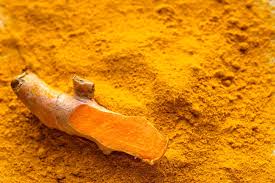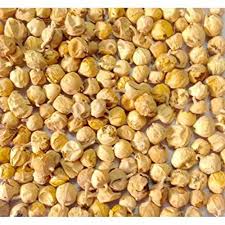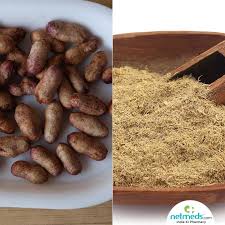In today’s fast-paced world, stress has become an inevitable part of life, affecting both physical and mental well-being. However, Ayurveda, the ancient Indian science of healing, offers a range of natural remedies and practices to promote a balanced, stress-free life. At Dirghaanshi, we delve into the best Ayurvedic practices that can help you manage stress, enhance your mood, and achieve peace of mind. Embrace these practices to restore balance and lead a more harmonious life.
Stress is one of the most common challenges faced in modern life. Whether it’s work-related pressure, personal concerns, or daily responsibilities, stress can negatively impact health, energy levels, and overall quality of life. Ayurveda, with its holistic approach to wellness, offers numerous remedies to address stress, restore harmony, and promote emotional balance.
Here are the best Ayurvedic practices for a stress-free living:
1. Meditation and Mindfulness:
Ayurveda emphasizes the importance of mental clarity and emotional stability. Regular meditation practices, such as Trataka (candle gazing) or Anapanasati (breath awareness), help calm the mind and reduce stress. Meditation allows you to connect with your inner self, release pent-up emotions, and regain emotional balance. Incorporating mindfulness into your daily routine helps you stay grounded and reduce anxiety.
2. Yoga and Pranayama:
Yoga is an essential practice in Ayurveda, helping to align the body, mind, and spirit. Asanas (physical postures) help release tension, while Pranayama (breathing exercises) improve oxygen flow and calm the nervous system. Nadi Shodhana (alternate nostril breathing) is particularly beneficial in reducing stress and anxiety by balancing the body’s energy channels. Regular yoga practice enhances mental clarity, reduces tension, and improves overall health.
3. Herbal Remedies for Stress Relief:
Ayurvedic herbs are known for their powerful adaptogenic and calming properties. Herbs like Ashwagandha, Brahmi, and Tulsi are excellent for reducing stress and anxiety. Ashwagandha is an adaptogen that helps the body cope with stress, while Brahmi enhances cognitive function and reduces mental fatigue. Tulsi (Holy Basil) is a potent herb for relieving stress and promoting emotional well-being.
4. Abhyanga (Self-Massage) with Herbal Oils:
Abhyanga, a traditional Ayurvedic practice of self-massage, is highly effective in reducing stress and promoting relaxation. Using warm herbal oils, such as Brahmi oil, Sesame oil, or Lavender oil, gently massage your body to stimulate circulation, calm the nervous system, and soothe the mind. Abhyanga enhances lymphatic drainage, improves skin health, and helps release emotional stress stored in the body.
5. Ayurvedic Diet for Stress Management:
Ayurveda emphasizes the importance of a balanced, wholesome diet to maintain mental and physical well-being. Foods that are light, nutritious, and easy to digest help maintain a calm and clear mind. Incorporate foods like ghee, almonds, bananas, sweet potatoes, and herbal teas (such as Chamomile or Lavender) into your diet to nourish your body and reduce stress. Avoid caffeine, alcohol, and excessive sugar as they can aggravate stress and anxiety.
6. Daily Routine (Dinacharya):
According to Ayurveda, a structured daily routine (Dinacharya) helps establish balance and promotes a sense of control over life. Consistent waking times, meals, and relaxation periods help the body function optimally and reduce stress. Practices like oil pulling and nasal irrigation (Neti) help cleanse the body and calm the mind. Following a daily routine provides stability, reduces stress, and enhances overall well-being.
7. Aromatherapy with Essential Oils:
Aromatherapy is another effective Ayurvedic practice for stress relief. Essential oils like Lavender, Sandalwood, and Rosemary help reduce anxiety, improve mood, and promote a restful environment. Diffuse these oils in your living space, use them in a warm bath, or massage them into your skin to experience their calming effects. Aromatherapy promotes relaxation and helps alleviate mental fatigue.
8. Panchakarma Detoxification:
Panchakarma is a detoxification therapy in Ayurveda that aims to cleanse the body of toxins (Ama) and restore balance. It involves a series of treatments, including Virechana (purgation), Nasya (nasal therapy), and Basti (enema therapy). Panchakarma helps release physical and emotional stress stored in the body, improve digestion, and rejuvenate the nervous system. Regular detoxification reduces the buildup of stress and promotes a calm, stress-free life.
9. Herbal Teas for Relaxation:
Herbal teas play a significant role in stress management in Ayurveda. Teas made from Chamomile, Ashwagandha, Tulsi, and Lemon Balm are known to relax the mind, reduce anxiety, and promote a peaceful night’s sleep. Sipping on these herbal teas throughout the day helps calm the nervous system and balance the body’s energies, making them an ideal stress-relief option.
10. Sleep Hygiene (Raatri Charya):
Ayurveda places great importance on proper sleep hygiene to maintain mental clarity and physical health. Establishing a nighttime routine that includes aromatherapy, herbal teas, and a peaceful environment can enhance sleep quality and reduce stress. Herbs like Ashwagandha and Brahmi help promote deep, restful sleep, essential for stress management.
Conclusion:
Incorporating Ayurvedic practices into your daily routine can significantly reduce stress and improve overall well-being. Whether through herbal remedies, yoga, meditation, or diet, Ayurveda offers a comprehensive approach to achieving a calm, balanced, and stress-free life. At Dirghaanshi, we provide holistic Ayurvedic solutions to help you manage stress and live a healthier, more peaceful life. Embrace these practices and experience the transformative effects of Ayurveda on your mind, body, and spirit.












